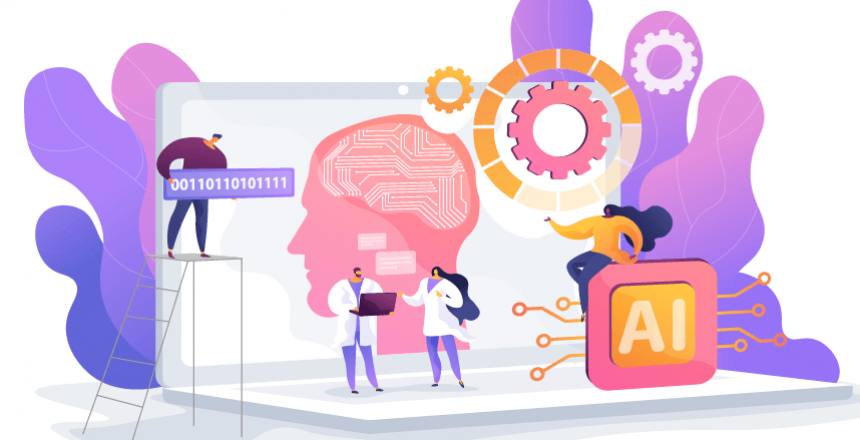Marketing powered by Artificial intelligence (AI) offers several effective ways for marketing and sales teams to get smarter about that strategy and automate their workflows. Still, AI seems to be underutilized by many enterprises, and those who do use it aren’t seeing the results they want. That might be due to a poor understanding of AI’s full potential for enterprises. Here are the best ways to leverage AI to transform your business.

Use predictive analytics to get qualified leads
A key feature of artificial intelligence is its immense capacity to collect and analyze data, then make predictions based upon that data. Standard predictive analytics are limited in what they can achieve. For example, they can identify the times that users are online and produce reports, but it takes a human to put those results into a strategy.
Now, there are AI-powered automated assistants on the market that can sift through large datasets of user input, such as messages and form submissions, then predict which of these users are qualified leads. The AI then sends these leads to human reps. This technology is so good that it’s freed up many sales reps’ valuable time and allowed them to focus on hot leads rather than spend their days sifting through thousands of emails.
READ: 12 Ways You Can Turn A Facebook Bot Into A Lead Generating Powerhouse
Use smart messaging to nurture leads and support customers
Successful businesses eventually become overwhelmed by leads, as well as support questions for customers. Without an accompanying growth in the sales and support teams, sales will inevitably be lost and retention will plummet. At least, that’s how it was before AI.
When AI takes the form of chatbots and automated messengers, it can improve companies’ response rate to leads. While human sales reps are limited in how many times they can “touch” a lead, an AI can handle multiple touches in mere seconds. Plus, it can roll in data to ensure that it’s making contact with the leads at the appropriate time, as well as upsell current customers at the optimal moment.
These forms of AI also can handle customer support inquiries. By handling the bulk of common questions or customer issues, AI frees up the support team’s plate for cases that require their expertise.
Use language-based AI to find keywords and fill your pipeline
Marketers are increasingly turning to AI as a means of identifying keyword phrases, coming up with content ideas, and even creating the content itself. AI can easily predict customers’ search queries and help advertisers develop a data-driven strategy.
Automated content generators have also come onto the market, quickly drafting ads and social media posts that take past performance and brand guidelines into account. Some AI-powered video editors have even cobbled together video ads with minimal human input. All these technologies streamline content creation while using data from past campaigns.
Wrapping Up
These use cases are certainly remarkable and convenient, but they do require some careful planning. The primary reason that companies see a low ROI for AI technology is that they’re not implementing it to its full extent. Marketers shouldn’t rely upon AI content generators if there is no linkage between those tools and AI-powered analysis of current campaigns. AI works best when it’s able to give itself feedback and continually adapt to new input. That’s the power of machine learning.
By the same token, AI is no substitute for robust, human-driven sales and marketing strategies. If the AI handles basic customer support inquiries but can’t connect queries to a human agent who can help customers when it can’t, you’re back at square one. If your sales agents aren’t aligning their pitch with what the AI initially gives cold leads, you’re sending mixed messages to your customers. As with any business technology, AI is a tool — and it’s worth doing the research to make it work for you.
